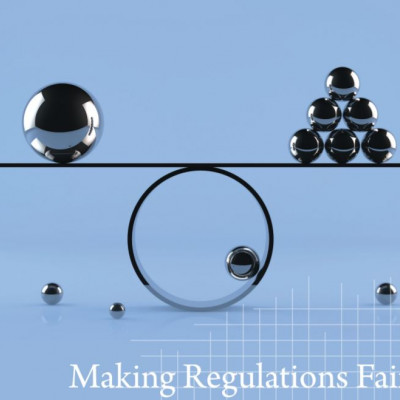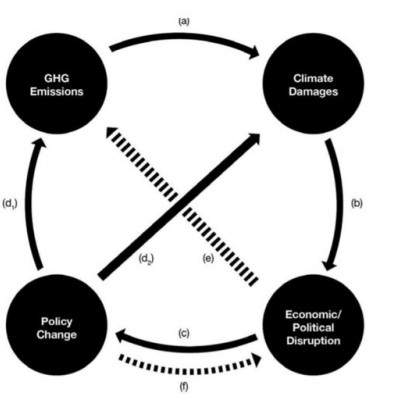September 30, 2021
September 2021 at Policy Integrity
- New Report: How to Prioritize Equity in Regulatory Policy
- What’s Next in Climate Economics?
- New Research on Climate-Society Feedback Effects
- Commentary: Electricity Reforms, NYC Climate Policy
- The Impacts of Line 5
- New Staff Members; Ünel Department of Energy Fellowship
- Hiring: Legal Fellow
- More from September 2021
-
New Report: How to Prioritize Equity in Regulatory Policy
To achieve the Biden administration’s ambitious commitments to equity and environmental justice, agencies will need guidance on how to assess and weigh the distributional effects of policy options. Our new report recommends steps that the Office of Management and Budget (OMB) take to mainstream equity into agencies’ decisionmaking. OMB should instruct agencies to conduct more granular analysis of distributional impacts, provide guidance on how to conduct such assessments, and direct agencies on how to weigh this data in decisionmaking. Finally, OMB should oversee a whole-of-government approach that coordinates among agencies with different mandates, assesses cumulative distributional effects across regulations, and identifies strategies for addressing them. The authors look forward to engaging with environmental justice-focused organizations on the issues raised in the report.
-

What’s Next in Climate Economics?
Leading climate economists came together for our “What’s Next in Climate Economics” webinar during Climate Week NYC to discuss the key opportunities and challenges of harnessing economics for climate policy. The panel was moderated by our director Richard Revesz, and included Al McGartland, chief economist at the Environmental Protection Agency, as well as distinguished academics Maureen Cropper (University of Maryland/Resources for the Future) and Michael Greenstone (University of Chicago). The panelists discussed key ways to improve climate impact assessments, from gathering community-level data to incorporating tipping points and migration impacts into the social cost of carbon. They also explored the role of economics research in driving stronger climate policies and promoting equity. You can watch the full discussion here.
-
New Research on Climate-Society Feedback Effects
Climate impact estimates have a blind spot when it comes to socio-economic and political feedbacks. As climate damages lead to social, including political and economic, disruptions, efforts to reduce emissions could be hindered. A new academic article by Peter Howard and Michael A. Livermore describes these climate-society feedbacks and how they can be incorporated into models that shape climate policy tools, such as the social cost of carbon.
-
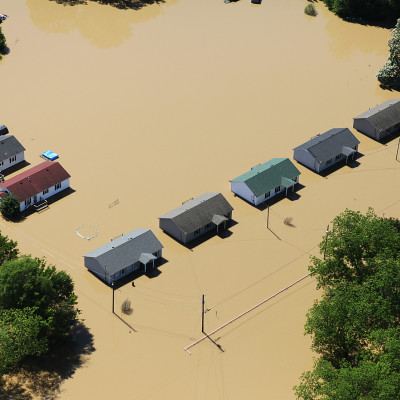
Commentary: Electricity Reforms, NYC Climate Policy
Our attorneys are shaping the public conversation around climate-smart policy reforms. Looking at interstate electricity markets, Sarah Ladin’s opinion piece for Utility Dive discusses proposed changes to the Minimum Offer Price Rule (MOPR). Sarah rebuts industry arguments about investor expectations, offering context about the evolution of MOPR and state climate policies.
In the wake of Hurricane Ida’s deadly impact on New York City, Justin Gundlach’s op-ed for The New York Daily News lays out four crucial steps NYC must take to meaningfully address climate change, arguing that housing, public health, transportation, and other policy areas cannot be managed effectively without considering the climate
-
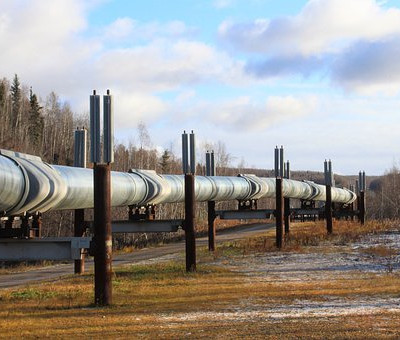
The Impacts of Line 5
A potential expansion to the controversial Line 5 oil and gas pipeline awaits approval from the Michigan Public Service Commission. Testifying before the commission, our economics director Peter Howard explained that the expansion could generate $41 billion in climate damages between 2027 and 2070. Learn more in Grist’s coverage of the testimony.
-
New Staff Members; Ünel Department of Energy Fellowship
Policy Integrity is growing! Over the past month, three new attorneys, four legal fellows, and an economic fellow joined our team. We now have more than 20 staff members for the first time.
Our Energy Policy Director Burçin Ünel is also taking a leave of absence to join the Department of Energy’s Office of Policy as a Senior Fellow. She will work on domestic energy and climate policy issues, focusing on clean energy deployment, infrastructure planning, and tax policy. Burçin is the latest member of our team to enter the Biden administration, joining Jayni Hein (White House Council on Environmental Quality), Avi Zevin (Department of Energy), as well as board members Tomás Carbonell (Environmental Protection Agency), Brenda Mallory (White House Council on Environmental Quality), and Julissa Reynoso Pantaleon (Chief of Staff to First Lady Jill Biden, Nominee for Ambassador to Spain).
-
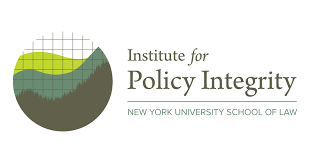
Hiring: Legal Fellow
Come join our team! We are hiring a legal fellow who will work with our lawyers and economists on regulatory policy, including environmental justice and energy policy, as well as public health and consumer protection. Check out the job description and apply by November 1, 2021.
-
More from September 2021
We submitted public comments to:
- EPA on the new clean car standards
- FERC on: climate risks, reliability, and resilience; transmission; and considering climate impacts when approving gas infrastructure
- Michigan Public Service Commission on extreme weather planning
- NHTSA on penalties for non-compliance with clean car standards
- EPA and USACE on repealing the Navigable Waters Protection Rule

